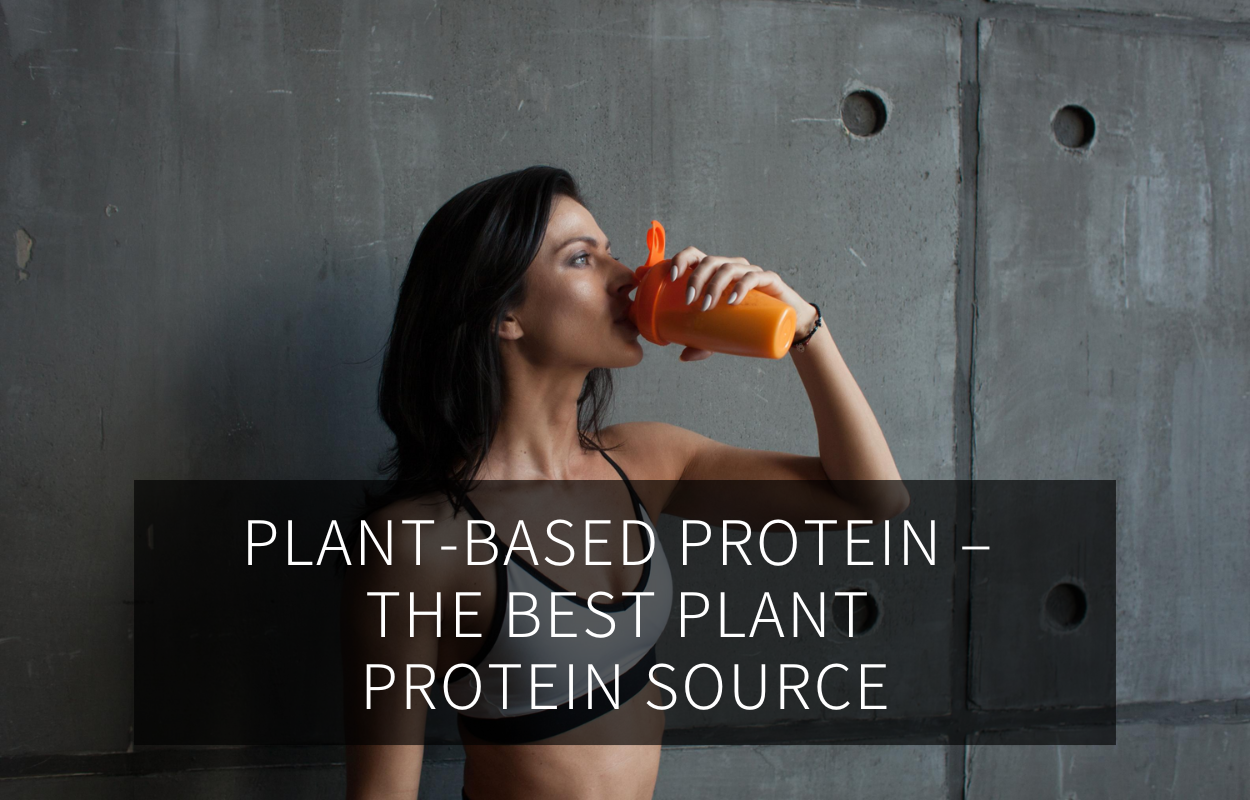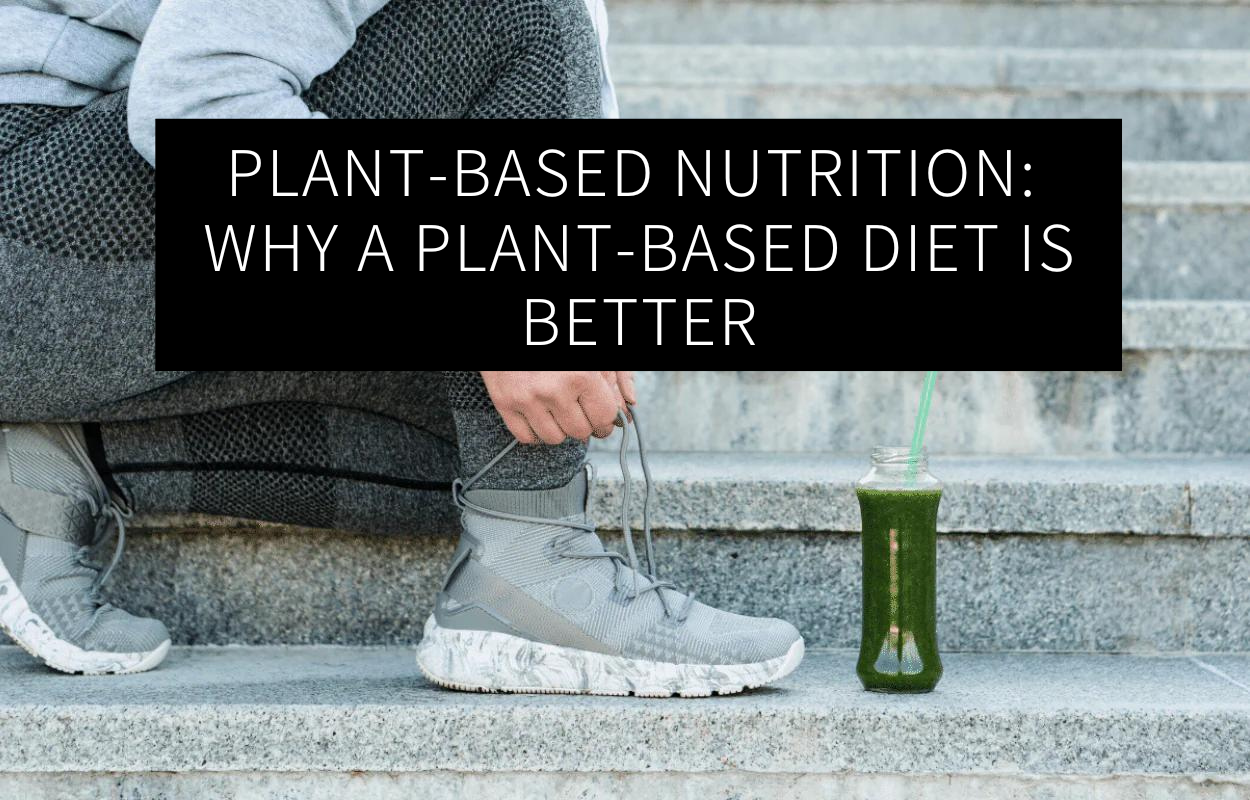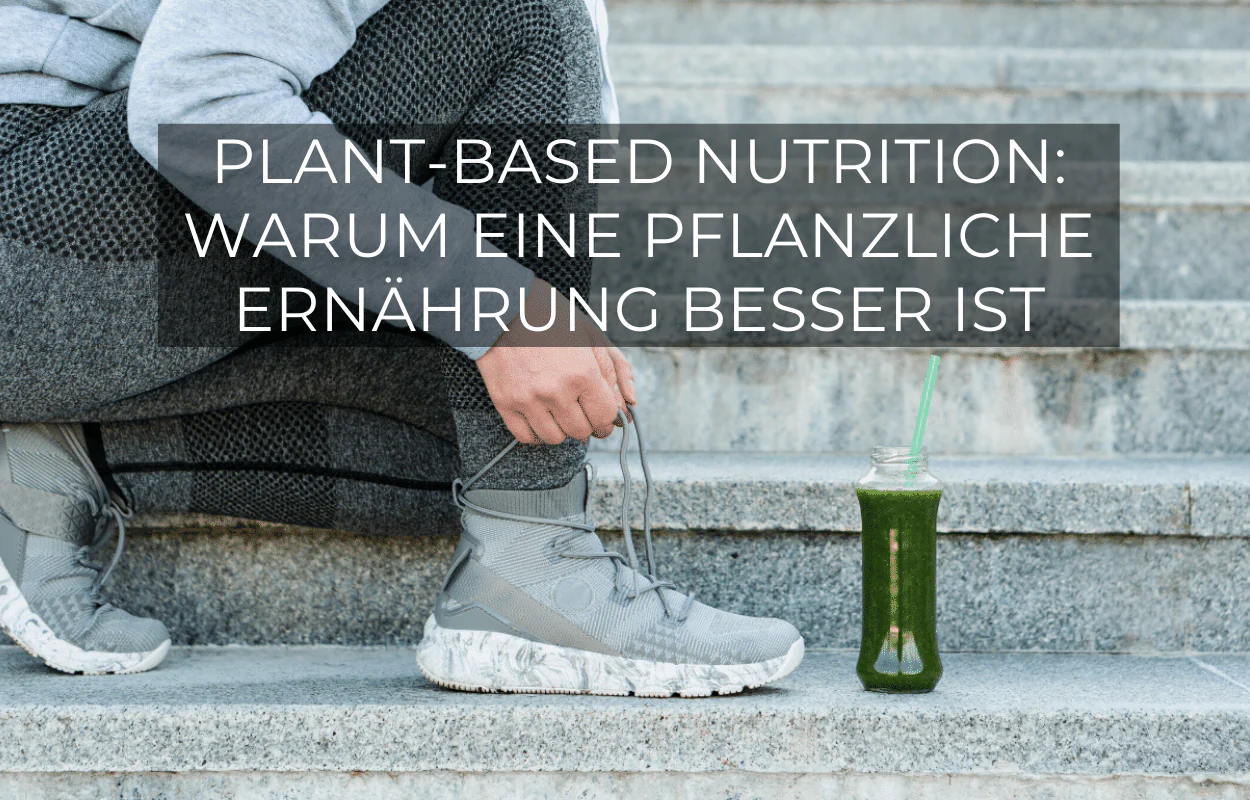Is plant-based protein good or bad? There is still a lot of debate about it. We’ll reveal whether the thesis is really true and what matters.
Whether you want to perform in your daily life, build muscles, or optimize recovery after training, you cannot escape an extra portion of protein. More and more office athletes and athletes turn to plant-based protein to supply their bodies with protein. Plant-based protein powders are easily digestible, provide high-quality proteins, and are also rich in amino acids. Nevertheless, they still seem to be overshadowed by whey protein and casein.
1. What are proteins and why do we need them?
Did you know that proteins are often referred to as the building blocks of life? They are present in every cell of our body – especially in muscles, hair, skin, and the brain. When you consider that proteins are not only needed for muscle building but also for the formation of enzymes and hormone balance, you can understand why they (along with carbohydrates and fats) should have a firm place in our daily diet.Chemically speaking, proteins are large molecules composed of small building blocks (amino acids). Once they are absorbed by the intestines, they can be broken down into the smallest components and transported to the muscles or organs through the bloodstream. While your body can produce some amino acids itself, you need to obtain the others through your diet. These so-called essential amino acids include:
- Leucine,
- Isoleucine,
- Methionine,
- Lysine,
- Phenylalanine,
- Threonine,
- Tryptophan, and
- Valine
Experts recommend consuming 1.5 to 2 grams of protein per kilogram of body weight daily, with athletes‘ protein needs potentially reaching up to 4 grams of protein.
By the way, it’s not only athletes who have a higher protein requirement – as a vegetarian or vegan, you should also pay attention to your protein intake!

2. Is plant-based protein better than animal-based protein?
The myth that a juicy steak, cottage cheese, and whey protein can contribute to better muscle building still persists. Therefore, many athletes still turn to animal proteins when it comes to muscle building. However, hardly anyone takes into account that consuming animal proteins also introduces a lot of cholesterol and a significant amount of fat into the body.
Animal proteins are increasingly criticized because they contain high amounts of cholesterol and unhealthy fats, which are considered to be the causes of cardiovascular diseases, diabetes, joint diseases, and cancer. Dairy products are also said to trigger inflammation and worsen skin condition due to the lactose they contain. Fish could be an alternative; however, depending on the type and origin, it can often be contaminated with microplastics and heavy metals.
For this reason, many people are already exclusively following a plant-based diet and obtaining their proteins from plant-based foods. Plant-based protein offers many advantages, even though it is still viewed with some skepticism. Let’s take a closer look at the benefits.
3. What are the benefits of plant-based protein?
When it comes to the topic of biological value, many people still advocate for animal proteins, even though plant-based proteins can easily compete. For comparison, a steak provides about 25 grams of protein per 100 grams, while 100 grams of lentils and peas each provide 23 and 24 grams of protein, respectively.
As you can see, plant-based proteins are by no means at a disadvantage, although they often score slightly lower in terms of biological value. Biological value is considered an indicator of how well your body can utilize a protein-rich food, with the biological value of an egg considered as the reference value of 100. However, this „flaw“ can be easily corrected by combining various plant-based protein sources.
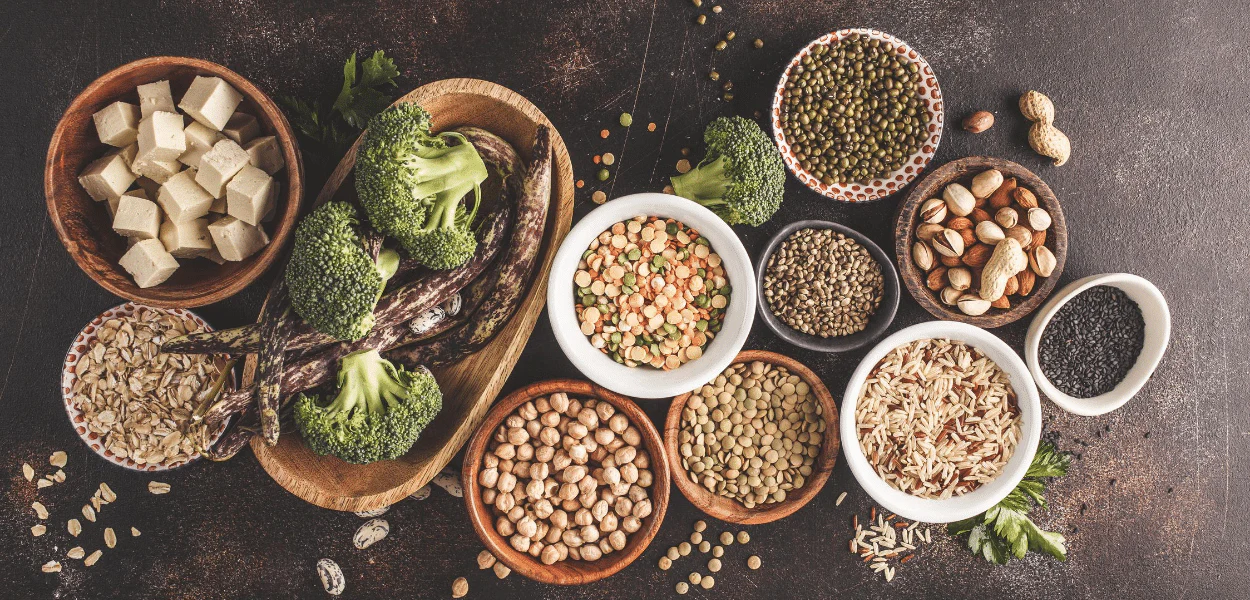
A good example is combining grains (and potatoes) with legumes, seeds, and nuts – a perfect protein bomb that supplies your body with a large amount of protein. When it comes to plant-based protein powders, rice, pea, and hemp protein clearly take the lead. In combination, they perform just as well as a whole egg.
Compared to protein-rich foods, plant-based protein powders have the great advantage of not only providing a high amount of protein but also containing many vitamins, minerals, and trace elements. This advantage is especially beneficial for vegan athletes who have high nutrient requirements. Do you want to know the advantages of each plant-based protein powder and why you should combine them? Then you should definitely keep reading.
4. Vegan Protein: What protein powders are available and what are their benefits?
Fortunately, the range of plant-based proteins has expanded significantly, so as a vegan performer or athlete, you no longer have any problems meeting your increased protein needs. There is a good reason why many vegans drink protein shakes: one serving can provide as much protein as a steak. Compared to protein shakes, legumes are rather hard to digest and can cause bloating.
Did you know that the low amount of fat present in plant-based protein powder can be beneficial for your body? This is because it mainly consists of polyunsaturated fatty acids, which are believed to have a positive effect on heart health.
#1 Rice Protein
Rice protein is one of the best plant-based proteins, providing 80 grams of protein and boasting an almost complete amino acid profile. Like any other plant-based protein powder, it offers a high protein content, is hypoallergenic, and easy to digest. The only drawback is that it lacks two essential amino acids, lysine and leucine, so it’s best to combine it with pea protein.
#2 Pea Protein
With 80 grams of protein, pea protein is no less impressive than rice protein. It is rich in iron, copper, and selenium, and stands out for its high content of leucine and lysine. When combined with rice protein, it achieves a high biological value similar to that of whey protein.
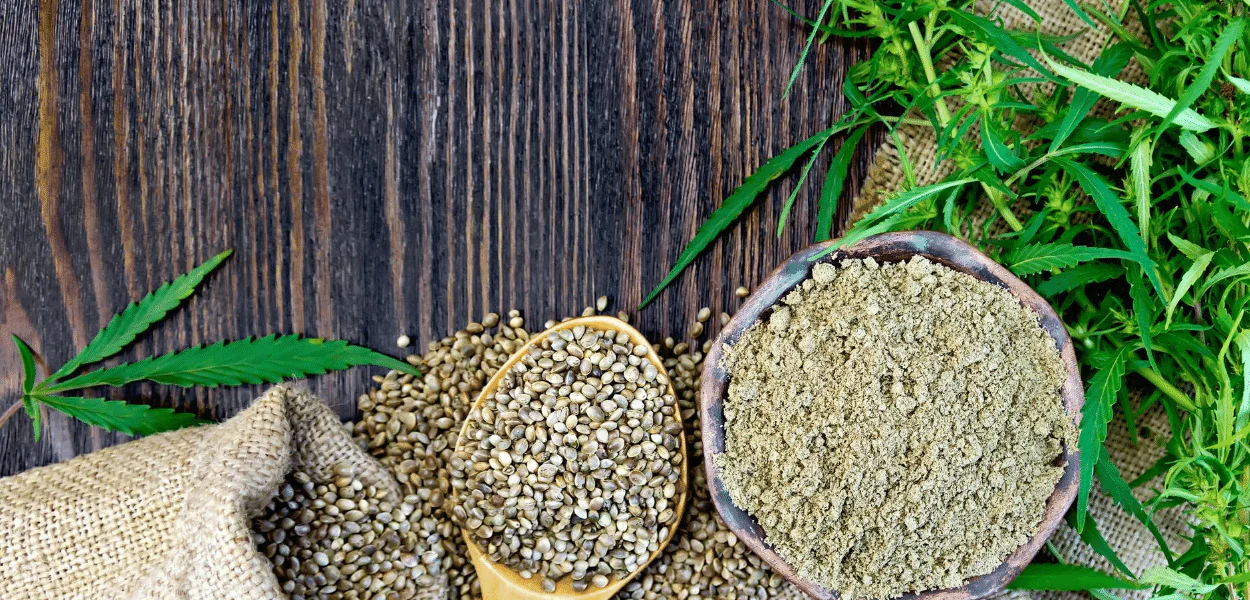
#3 Hemp Protein
Hemp protein is a perfect plant-based protein known for its complete amino acid profile and high content of BCAAs (branched-chain amino acids). Although it contains slightly less protein, it combines well with pea or rice protein.
5. Why Is Soy Protein Viewed Critically?
While soy protein can also be part of a vegan diet, the protein powder is viewed critically by many experts. The first criticism is that soy protein is among the allergenic substances suspected of causing allergies and cross-allergies. Additionally, the protein powder is often derived from genetically modified soybeans, which can have adverse effects on your health.
Another criticism against consuming soy protein is the presence of phytoestrogens, which are similar to the female hormone estrogen. They are not only suspected of inhibiting muscle growth but also contributing to the formation of „man boobs.“
6. Plant Protein for Performance, Muscle, and Recovery
Protein is essential for muscle building and maintenance. However, muscles are not built during training but rather during sleep. Training serves to provide new stimuli, forcing the muscles to adapt to the new load. Microscopic injuries occur, which your body needs to „repair“ through cell regeneration during the night. As you can see, recovery plays a crucial role in muscle building.
It is important to provide your body with protein both after training and during the night, as proteins are indispensable for the formation of new muscle cells. In addition to rice protein, pea protein is one of the best vegan post-workout shakes because the powder is not only easily digestible and high in protein content, but also rich in arginine.
Arginine is an amino acid that contributes to the activation of growth hormones, which can promote muscle growth. When combined with rice protein or hemp protein, you obtain a complete amino acid profile necessary for muscle building.
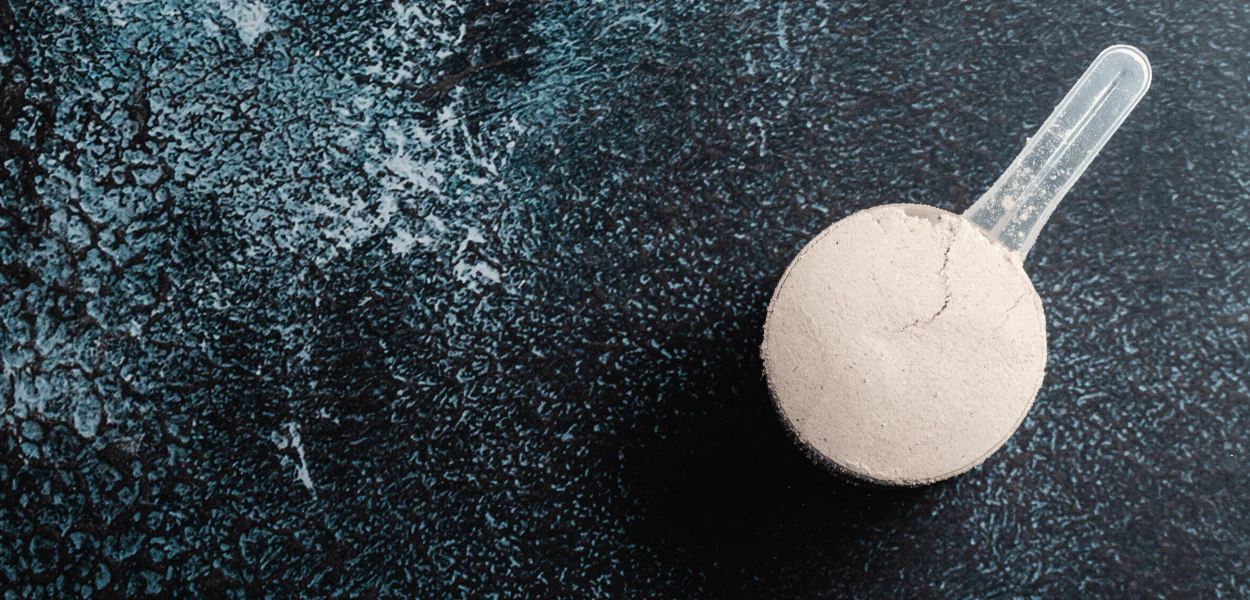
Unlike pea protein, hemp protein is digested slightly slower, making it suitable for the recovery phase. With its complete amino acid profile, it provides the body with everything it needs for recovery.
7. Conclusion: Plant Protein Powder is an Ideal Protein Source
As you can see, plant-based protein powders outperform animal-based ones in terms of protein content, digestibility, and tolerance. When combined, they provide a complete amino acid profile comparable to whey protein. Unlike whey protein, vegan proteins offer many natural nutrients and do not cause allergies in the body. The only exception is soy protein, which not only poses a high allergy potential but also has a high content of phytoestrogens.

